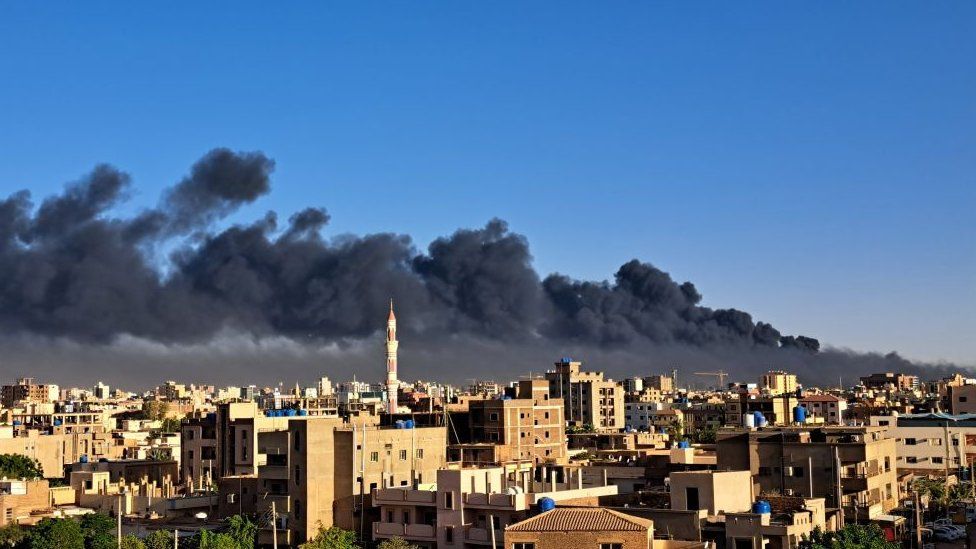Conflict in Sudan Poses Dire Threat to Neighbouring African Nations
Key Highlights :

The conflict between rival generals in Sudan has caused a great deal of concern for the neighbouring African countries, who are already struggling with refugee flows and armed rebels at their borders. Analysts fear that if the war between Sudanese army chief Abdel Fattah al-Burhan and Mohamad Hamdan Dagalo’s Rapid Support Forces becomes protracted, the implications for the region could be dire. Ethnic militias, anti-government insurgencies, paramilitary groups and Russian mercenaries operating in porous, mineral-rich borderlands could use the crisis to launch attacks or foment rebellions.
The seven countries that border Sudan, including Egypt, Libya, Chad, South Sudan, Ethiopia and Eritrea, have all dealt with some combination of sustained conflict, food insecurity, armed rebellions and civil unrest in recent years. Of these, Chad and South Sudan are at the most immediate risk from the conflict in Sudan. The United Nations estimates that the two countries, which rank among the world’s poorest, could receive as many as 270 000 refugees in the coming weeks.
Chad, a key Western ally in the fight against terrorism and a bulwark against growing Russian influence in the region, has in recent years beaten back two serious coup attempts that emerged from just over the border in Sudan’s Darfur region, where intense ethnic fighting has already killed scores during the current war. Many of the rival groups in Darfur "may also have connections over the borders in Chad and CAR," said Sarra Majdoub, a Sudan-based independent conflict analyst.
Among the armed groups operating in the region is the Russian paramilitary company Wagner Group. The Kremlin-linked mercenary operation has forces in Sudan, Libya and CAR, where it’s involved in the diamond and gold trade. The group also has ties to a gold processing facility outside Atbara in Sudan, according to recent EU sanctions. The foreign fighters have helped the CAR government secure its gold-rich northern region that’s rife with armed groups, some with links to rebels in western Darfur.
The worsening security situation has seen an influx of refugees fleeing Sudan’s violence, with at least 30 000 people having arrived in Chad and South Sudan so far, along with 16,000 who’ve fled north to Egypt, according to authorities. Most hope to enter fragile countries hit hard by their own protracted conflicts as well as the impacts of climate change and food insecurity.
The conflict in Sudan poses a dire threat to neighbouring African nations, who are already struggling with refugee flows and armed rebels at their borders. The implications of a protracted war could be dire, with ethnic militias, anti-government insurgencies, paramilitary groups and Russian mercenaries operating in porous, mineral-rich borderlands. Chad and South Sudan, which rank among the world’s poorest, are at the most immediate risk, with the United Nations estimating that the two countries could receive as many as 270 000 refugees in the coming weeks. The spillover effects of the conflict are already visible, and the neighbouring countries are bracing for the potential of further unrest and violence.
